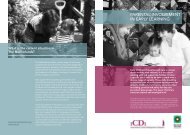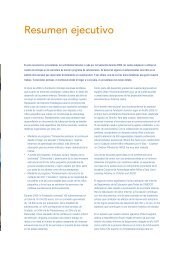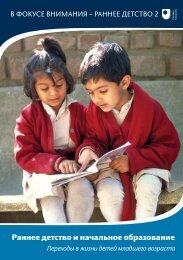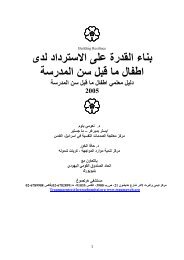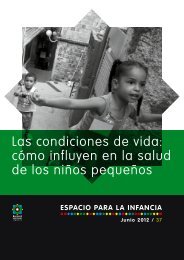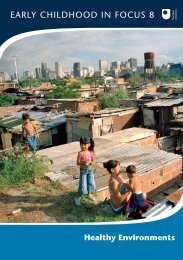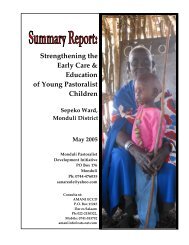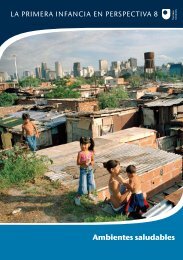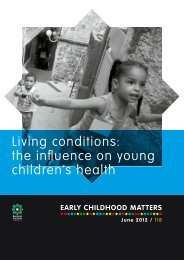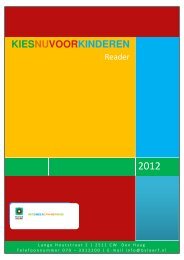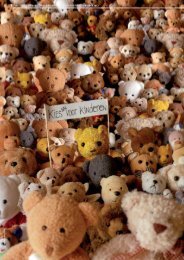Report - Bernard van Leer Foundation
Report - Bernard van Leer Foundation
Report - Bernard van Leer Foundation
You also want an ePaper? Increase the reach of your titles
YUMPU automatically turns print PDFs into web optimized ePapers that Google loves.
Table 7: Overview of Key Challenges IdentifiedThe Early Care & Education of Young Pastoralist Children in Sepeko Ward1. … In Families & CommunitiesSummary of Key Challenges1. Communities recognise that the quality of care & early education of their young children is generallynot good, due to a combination of factors. …….1.1 Pastoralists’ livelihoods, family structures, and social and cultural contexts are rapidly changing, withnegative implications for young children’s development,a. women increasingly heavy workloads means that they simply do not have the time to adequatelycare for their children;b. traditional child-care support structures are fading, and the child-care knowledge, beliefs andpractices of younger generations are limitedc. Informal Education at the family & community level is declining, and young children’sopportunities for early learning & socialisation, are less.1.2 Environmental hardships combined with poor access to water & limited food supply are resulting inyoung children’s poor health & nutrition, thus hindering their growth, development and ability tolearn.2. … In Health Care Services2. Health services are inadequate, not accessible and not planning is not informed by reliable data2.1 With dispensaries & clinics 7 - 20kms from communities these services are not accessed by mothers &children on a regular basis.2.2 There is an apparent lack of awareness of some clinic staff to the reality of children’s poor health andwell-being, & a lack of flexibility in how their services could be delivered.2.3 A lack of reliable data on health & nutrition status of young children and mothers in the District, haslimited planning.3. … In the Existing Community Pre-Schools & Primary Schools3.1 Communities’ interest in formal education is increasing, and they are actively mobilising their owncommunity pre-schools to improve the quality of care & early education of their young children,however with the many unresolved challenges of primary schools, they are not sure if the DistrictCouncil will assist them.3.2 Location, facilities & provisions, are challenges for children’s & communities participation, shared byboth community Pre-schools & Primary Schools, but there are key lessons to be learned from preschoolsbased within communities.3.3 Caregivers / Teachers for Community Pre-schools are mostly nominated by communities and theyshare with Primary Teachers the urgent need for specific training in working with young children &their communities3.4 Whilst communities prefer that Kimaasai is the language of community pre-schools and is used in preschool& primary school to teach Kiswahili – this is only possible where Maasai Teachers are involved.3.5 Programme content, approaches & resources, of pre-schools and early years of primary schools arelimited to primary school syllabus & teacher-directed approaches, which do not reflect communityknowledge & beliefs about how children learn or what is important for them to learn3.6 Links Between Community Pre-schools , Health Services & Primary Schools are minimal.22




